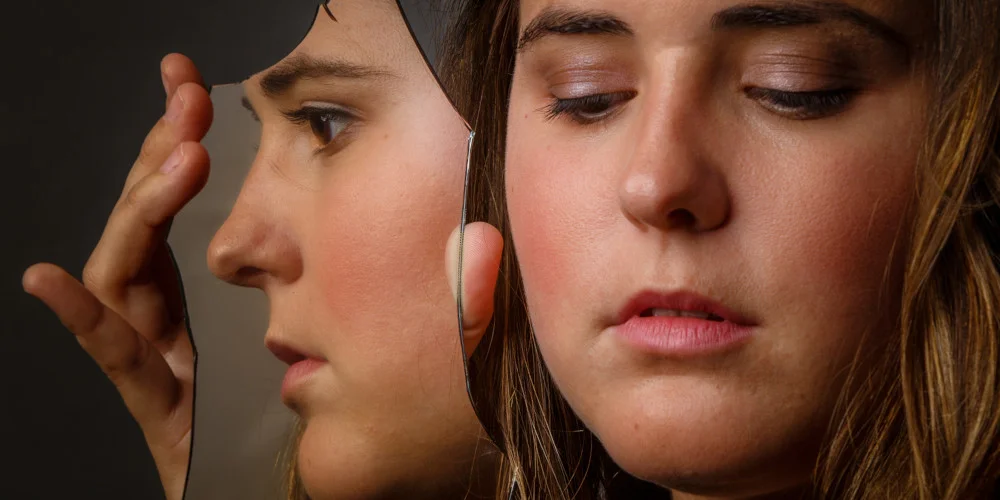Although depression is a common mental health condition, it can be difficult for those who haven’t experienced it to understand how it feels. It’s natural to want to cheer up a loved one by encouraging them to go out and have fun, hoping this will lift their spirits. Over time, you might become frustrated and wish they could just snap out of it. Unfortunately, depression is far more complex than simply needing more fun or positivity. There is no quick fix; overcoming depression often requires professional intervention and support.
Understanding Depression
Depression is a mental health disorder characterized by persistent feelings of sadness, hopelessness, and a lack of interest or pleasure in daily activities. Unlike occasional sadness, depression is a chronic condition that can severely impact a person’s ability to function in everyday life, affecting their work, relationships, and overall well-being.
If you suspect that you or someone you care about may be suffering from depression, it helps to understand the symptoms and what living with this condition feels like. Some common symptoms include:
Overwhelming Sadness
What It Looks Like: Overwhelming sadness in depression is not just a fleeting emotion but a persistent, all-consuming feeling. It can manifest as:
- Constant Emotional Pain: Individuals may feel a deep, unshakeable sadness or a profound sense of emptiness. This isn’t a sadness that comes and goes; it’s a persistent feeling that lingers throughout the day, every day.
- Emotional Numbness: Sometimes, this sadness translates to a complete lack of emotion. People might feel numb, unable to experience joy, excitement, or even sadness in the usual way.
- Crying Spells: Frequent, uncontrollable bouts of crying without a clear reason can be common. This can happen multiple times a day or intermittently without any specific triggers.
- Feelings of Hopelessness: There might be a pervasive sense that nothing will ever improve and that the future holds no promise. This can lead to thoughts of worthlessness or excessive guilt over things that wouldn’t normally be a big deal.
Changes in Sleep Patterns
What It Looks Like: Depression often disrupts normal sleep patterns, which can manifest in various ways:
- Insomnia: Difficulty falling asleep, staying asleep, or waking up too early and not being able to go back to sleep. This can lead to significant daytime fatigue and difficulty functioning.
- Hypersomnia: Sleeping much more than usual, often to escape from feelings of depression. This can include sleeping for long periods at night and taking excessive naps during the day.
- Restless Sleep: Even if the person manages to sleep for an adequate amount of time, the quality of sleep is often poor, leading to feelings of fatigue upon waking.
- Sleep-Wake Cycle Disruptions: Irregular sleep patterns where the person may sleep during the day and be awake at night, disrupting their circadian rhythms.
Changes in Appetite
What It Looks Like: Depression can lead to significant changes in eating habits, which may include:
- Increased Appetite: Some people may turn to food for comfort, leading to overeating, especially of high-calorie or sugary foods. This can result in noticeable weight gain.
- Decreased Appetite: Others may lose interest in food altogether, leading to a lack of eating and significant weight loss. Meals might be skipped regularly, and even the thought of eating can become unappealing.
- Erratic Eating Patterns: Some individuals might alternate between periods of overeating and not eating at all, leading to unpredictable and unhealthy weight fluctuations.
Fatigue
What It Looks Like: Fatigue in depression is more than just feeling tired; it is a pervasive exhaustion that impacts daily life:
- Persistent Tiredness: Feeling constantly drained and lacking energy, even after a full night’s sleep. This fatigue is relentless and doesn’t go away with rest.
- Physical Symptoms: Heaviness in the limbs, slow movement, and a general sense of physical depletion. Simple tasks, like getting out of bed or showering, can feel like monumental efforts.
- Mental Exhaustion: Difficulty in thinking clearly, concentrating, and making decisions. Mental tasks feel overwhelmingly difficult, contributing to a sense of hopelessness and frustration.
Difficulty Concentrating
What It Looks Like: Difficulty concentrating due to depression can significantly interfere with daily functioning:
- Poor Focus: Inability to concentrate on tasks at work or home, leading to decreased productivity and performance. Individuals might find themselves reading the same paragraph over and over or unable to follow a conversation.
- Memory Problems: Forgetfulness and frequent memory lapses. Important appointments, tasks, or even recent conversations may be easily forgotten.
- Indecisiveness: Struggling to make even simple decisions, such as what to eat for dinner or what clothes to wear. This can create additional stress and anxiety.
Loss of Interest
What It Looks Like: A hallmark of depression is anhedonia, or the loss of interest in activities once enjoyed:
- Disengagement from Hobbies: Lack of interest in hobbies, sports, social activities, or any pursuits that used to be pleasurable. This can lead to withdrawal from social interactions and isolation.
- Avoidance of Social Interaction: Preferring to stay home rather than go out with friends or family. Social events that were once anticipated may now seem daunting or pointless.
- Decline in Performance: Reduced participation and performance in work or school activities. This can lead to deteriorating relationships with colleagues or classmates and might further feelings of guilt or worthlessness.
Exploring the Stages of Depression
Depression does not necessarily follow a linear progression but can vary in intensity and impact. However, it often moves from mild to moderate to severe if left untreated.
Mild Depression: Early signs include a lack of motivation, mild mood swings, and a general feeling of unease. Individuals may still manage their daily responsibilities but with noticeable difficulty finding joy in activities they once enjoyed.
Moderate Depression: Symptoms intensify, making it harder to function in daily life. Fatigue, persistent sadness, and a growing sense of hopelessness become more pronounced, affecting work, social interactions, and personal interests.
Severe Depression: At this stage, depression is debilitating. The individual may experience an overwhelming sense of despair, struggle to get out of bed, and have thoughts of self-harm or suicide. Severe depression requires immediate and comprehensive treatment to ensure the person’s safety and start the recovery process.
Supporting a Loved One with Depression
Supporting someone with depression involves patience, understanding, and encouragement. Here are some ways to help:
- Listen Without Judgment: Allow them to express their feelings without trying to fix the problem immediately.
- Encourage Professional Help: Suggest they seek help from a mental health professional, such as a therapist or psychiatrist.
- Offer Practical Support: Help with daily tasks or accompany them to appointments.
- Be Patient: Understand that recovery from depression takes time and that setbacks can occur.
Depression is a serious and complex mental health condition that requires understanding and support. By recognizing the symptoms and stages of depression, and offering compassionate assistance, you can play a crucial role in helping a loved one on their journey to recovery. Remember, seeking professional help is a critical step towards overcoming depression and achieving long-term well-being.




